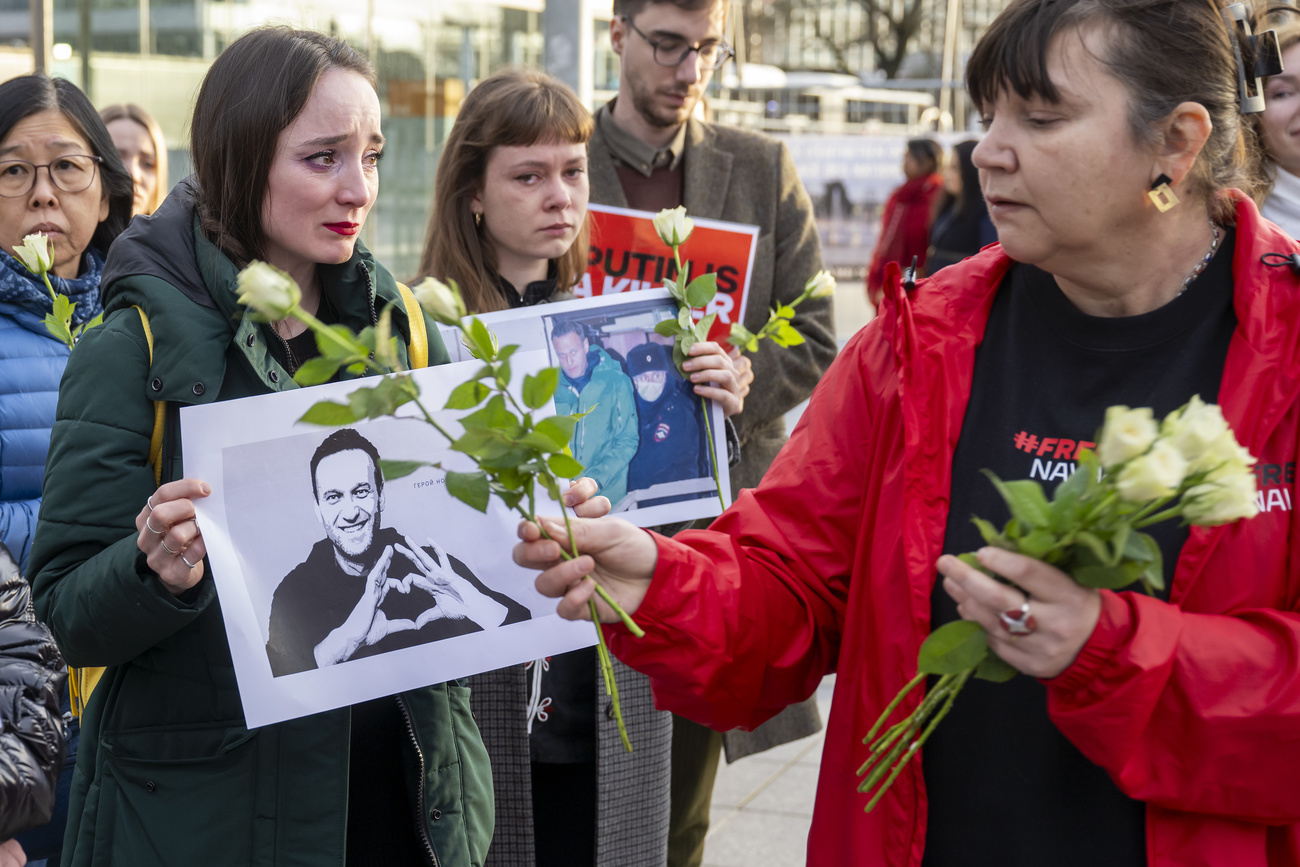
Navalny death: Russian ambassador not summoned in Switzerland

After the death of Russian opposition politician Alexei Navalny, Switzerland has not summoned the Russian ambassador. Bern is thus not following measures taken by Germany, the UK, Sweden, Finland and the Baltic states.
A foreign ministry spokesperson told the Swiss News Agency Keystone-SDA on Monday that there were no plans to summon the Russian ambassador to Switzerland.
However, Switzerland is demanding that the circumstances surrounding the death of Alexei Navalny be fully clarified. It is therefore calling for a corresponding investigation. “Switzerland has repeatedly denounced the arbitrary detention and ill-treatment of Alexei Navalny in the past,” emphasised the spokesperson.
+ Swiss foreign ministry expresses concern at the death of Kremlin critic Alexei Navalny
The politically motivated proceedings against Navalny and numerous other critics of the Russian government and the inhumane prison conditions showed how brutally the Russian judiciary is cracking down on dissenters and how President Vladimir Putin is suppressing freedom of expression in Russia, said a spokeswoman for the Federal Foreign Office.
Sweden, Finland and the Baltic states of Estonia, Latvia and Lithuania also summoned the chargés d’affaires of the Russian embassies in their countries. It was made clear that the responsibility for Navalny’s death lay with Russia and the Kremlin.
+ Oleg Radzinsky: ‘I hope Alexei Navalny’s death will wake up Western politicians’
The Foreign Office in London had already announced on Friday evening that Navalny’s death must be fully and transparently investigated. The ministry had “summoned the Russian embassy to make it clear that we hold the Russian authorities fully responsible”. For his part, US President Joe Biden immediately held Putin personally responsible for Navalny’s death.
Putin’s best-known political opponent had died in a Russian detention centre. His death was confirmed by his spokesperson on Saturday. The Russian penitentiary system had previously reported Navalny’s death, who had been imprisoned since 2021. The Russian authorities have so far denied the bereaved access to the body.
Translated from German by DeepL/ts
This news story has been written and carefully fact-checked by an external editorial team. At SWI swissinfo.ch we select the most relevant news for an international audience and use automatic translation tools such as DeepL to translate it into English. Providing you with automatically translated news gives us the time to write more in-depth articles.
If you want to know more about how we work, have a look here, and if you have feedback on this news story please write to english@swissinfo.ch.

In compliance with the JTI standards
More: SWI swissinfo.ch certified by the Journalism Trust Initiative





























You can find an overview of ongoing debates with our journalists here . Please join us!
If you want to start a conversation about a topic raised in this article or want to report factual errors, email us at english@swissinfo.ch.